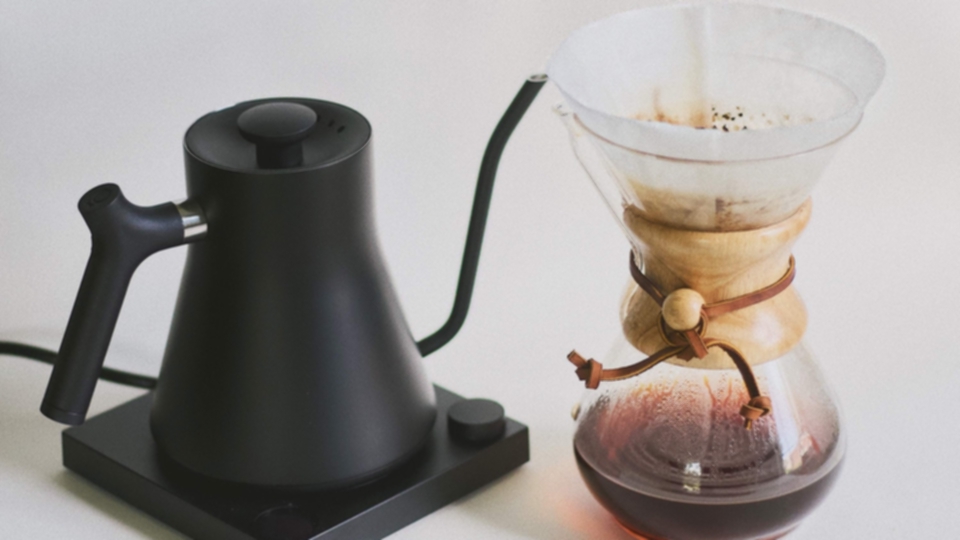How To Adjust The Water Temperature For Brewing Better Coffee?
In a cup of coffee, water accounts for 94-98%, but in addition, water temperature (including minerals in the water) will also affect the sweetness, bitterness, and sourness of coffee.
Controlling the temperature of the brewing water is very important for those who love pour-over coffee. Unfortunately, the water temperature is often negatively affected by insufficient personnel training or the use of the wrong equipment.
How Does Water Temperature Affect Coffee?
Water temperature will directly affect the release of different substances during brewing.
Many chemical reactions occur during brewing. The water extracts chlorogenic acid, acetic acid, malic acid, caffeine, oil, etc., and these substances are also released at different time points. For example, caffeine and fruit acid are released in the first part of brewing, sweetness is released in the middle part, and bitterness is released in the latter part.
What does this have to do with water? The higher the water temperature, the faster the release of substances. Since each substance affects a certain flavor, the brewer must carefully control the substances extracted at each time.
When the temperature is higher, it will be more difficult to control the extraction, and some unpleasant substances will be released quickly. Words such as too strong and burnt are usually used to describe this kind of coffee whose flavor is out of control due to high-temperature extraction.
What about low temperature? The best evidence is that people usually say that cold brew coffee is too weak because the temperature of the brewing water is too low. However, anyone who has drunk it knows that cold brew coffee is very smooth, sweet, and not very acidic. Although extending the brewing time can make up for the problem of low water temperature, certain substances will not be extracted at low temperatures. At different temperatures, the release speed of different fragrance components is different.
In addition, because the brewing time and grinding thickness cannot fill the defects of low-temperature brewing, the brewed coffee will foul sour taste and lack a full body. Because the extracted substance is mainly acid, the fat that increases the body thickness is missing, and the sweetness and bitterness that balance the flavor of coffee are also missing.
Precise brewing is very important. Controlling the water temperature will produce better flavors.
It is very important not only to have the correct water temperature but also to maintain the consistency and accuracy of the brewing. As Paul said: "The unstable water temperature is like keeping the oven on and off when baking a cake, causing the oven to lose temperature, and the result will be very bad."
Bad Appliances Will Also Affect The Water Temperature
Unfortunately, the water temperature has always been a big variable. It is impossible to remove the variable cause of water temperature completely, but it can be controlled.
Appliances are also the key to controlling variables. Nathan pointed out that poorly insulated pots and poor heating appliances often lead to unstable results.
Insufficient hot water supply is usually the result of a lack of precision in temperature control and cold water being poured into the hot water machine at the same time. It is important to use appliances with stable water supply temperatures. A good machine can even brew stable-quality espresso coffee.
A good espresso machine can precisely control the temperature, and the temperature at which the water touches the coffee powder is also correct. The problem with pour-over coffee is that you often add hot water to the pour-over pot, which will cause the water temperature in the pot to decrease. We use Marco SP-9, which can control the water temperature, so we can know the temperature of the coffee powder when brewing.
You can read more posts about coffee.
Barista Training Makes The Water Temperature More Stable
However, the point to consider is not just the appliance. A high-quality water control system, such as Marco MIX, can accurately control the water temperature. However, if someone pours hot water into a cold pour-over pot or uses a filter cup that has not been preheated, it will cause the temperature to drop by more than ten degrees.
Therefore, a well-trained barista is very important, not only in the process of preheating the appliance but also in the brewing skills. The brewing method will also affect the variable factors of the water temperature. If the coffee powder is not kept in a moist state, the coffee grounds in the filter cup may affect the water temperature, resulting in an unstable temperature.
Accepting formal education and training, and even participating in professional brewing courses, can help improve this situation.
As long as the water temperature is mentioned, many variables will affect the quality and stability of coffee. Make sure that you have high-quality appliances that can accurately control the brewing variables. Set the standard procedure for pour-over. And whether it is brewing in a store or planning to take a certification exam, good training is necessary.
After all, a good bean needs to be cooked well to bring out its flavor.

